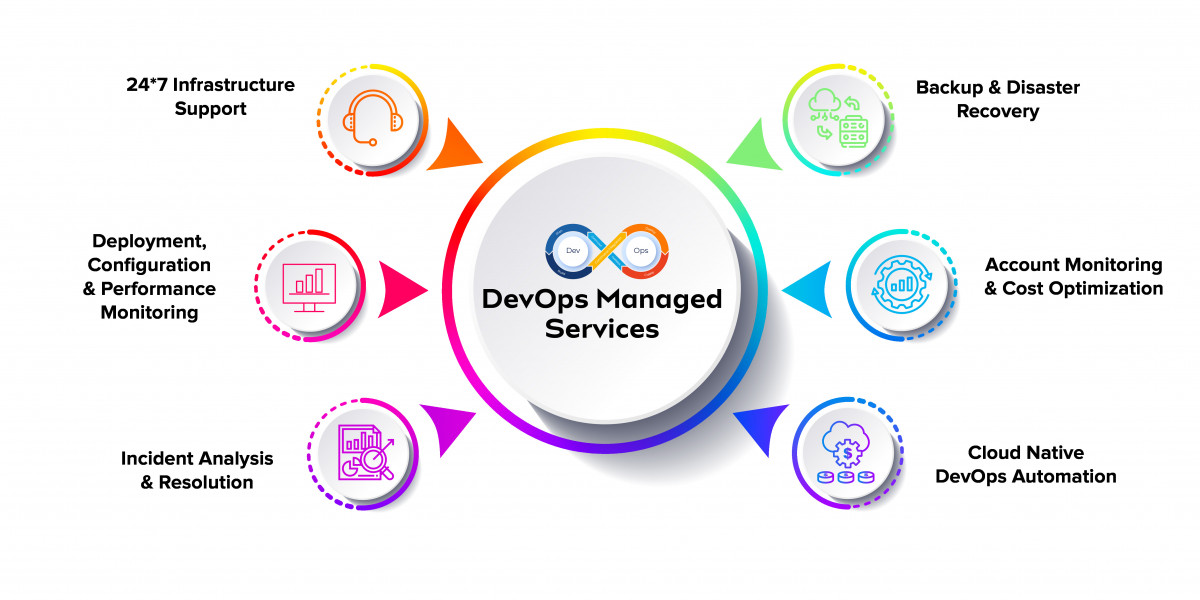In today's fast-paced digital environment, businesses face mounting pressure to deliver software faster, with greater reliability, and at scale. To meet these demands, organizations are increasingly adopting Managed DevOps —a strategic approach to streamline software development and operations without the overhead of building everything in-house.
This blog dives deep into the concept of Managed DevOps, its core benefits, and how it empowers teams to innovate faster, reduce deployment errors, and maintain highly available systems.
What is Managed DevOps?
Managed DevOps is a service model where a third-party team handles the full lifecycle of your DevOps processes. This includes the design, implementation, automation, and continuous optimization of pipelines, infrastructure, and monitoring systems. Rather than assembling internal teams and managing complex DevOps ecosystems, businesses rely on experts to deliver a fully optimized and automated environment.
With DevOps managed services , teams can accelerate development cycles, reduce downtime, and gain complete visibility over their deployment processes—all while maintaining focus on core business goals.
Core Components of Managed DevOps
Managed DevOps covers a wide spectrum of services and tools, designed to bring efficiency, reliability, and scalability to software development and IT operations.
1. Continuous Integration and Continuous Delivery (CI/CD)
Automation lies at the heart of DevOps. Managed services provide seamless CI/CD pipeline setups, enabling developers to integrate code frequently, test automatically, and deploy with confidence.
2. Infrastructure as Code (IaC)
With tools like Terraform and CloudFormation, infrastructure can be defined and managed using code, ensuring consistency across environments and speeding up provisioning. Managed DevOps providers configure and maintain these frameworks for scalable, repeatable infrastructure.
3. Cloud-Native Infrastructure Management
A key component of cloud engineering services is optimizing multi-cloud or hybrid deployments. Managed DevOps services ensure your cloud resources are cost-efficient, secure, and fully aligned with your system architecture.
4. Proactive Monitoring and Logging
To maintain system health, real-time monitoring and centralized logging are essential. Managed services implement comprehensive observability using tools like Prometheus, Grafana, and ELK Stack to identify and fix issues before they escalate.
5. Security and Compliance Automation
From vulnerability scanning to access control and policy enforcement, security is integrated throughout the DevOps lifecycle. Managed solutions ensure adherence to industry standards without slowing down innovation.
Key Benefits of Managed DevOps
Outsourcing DevOps management delivers several significant advantages, especially for organizations looking to modernize quickly and efficiently:
? Faster Time-to-Market
Automated workflows and expert configurations reduce the time it takes to go from development to production, helping businesses release updates and features faster.
? Cost Efficiency
Eliminate the need for in-house DevOps hiring and training. With Managed DevOps, businesses access top-tier expertise without the overhead costs.
? Scalability on Demand
Whether scaling horizontally or vertically, Managed DevOps ensures your systems grow with you. Infrastructure and pipelines adapt seamlessly as user demand increases.
? Focus on Innovation
By removing the operational burden from internal teams, developers can concentrate on building new features and improving customer experiences.
Who Should Consider Managed DevOps?
Managed DevOps is ideal for:
Startups needing fast infrastructure deployment without building a DevOps team from scratch
SMBs and enterprises aiming to modernize legacy systems with automation and cloud-native tools
Digital product teams striving for fast release cycles and reliable deployments
Organizations with compliance needs seeking secure, traceable DevOps workflows
Whether you're launching a new product or modernizing an existing application, managed services help you move faster with less risk.
Real-World Use Case: From Chaos to Continuous Delivery
Imagine a company struggling with deployment errors, inconsistent environments, and slow release cycles. By adopting Managed DevOps , they implement IaC for consistent infrastructure, establish automated CI/CD pipelines, and integrate real-time monitoring. Within weeks, deployment times are cut in half, system reliability improves, and the team starts releasing updates multiple times a day—all without expanding internal headcount.
Final Thoughts
In an age where speed, quality, and resilience define digital success, Managed DevOps has emerged as a game-changer. It simplifies complex operations, reduces time-to-market, and empowers development teams to deliver with confidence.
Whether you're scaling a startup or transforming enterprise workflows, leveraging DevOps managed services offers a reliable, efficient path forward. When paired with strategic cloud engineering services , it creates a robust foundation for continuous delivery, innovation, and growth.








